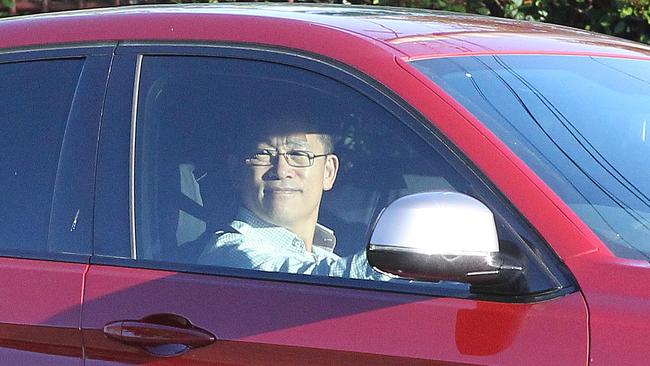Cornerstone Investments college business lucrative but a lesson in failure
An institute with only five graduates got $46 million in loans, and it’s legal.

Businessman Jin “Jim” Yang’s training institute picked up $46 million through federal government loans last year to run online courses for 4000 students, but only produced five graduates.
Despite the low graduation rate, Mr Yang’s Cornerstone Investments charged international students $7000 for its business diplomas, but Australian students are left with a $14,800 government-backed debt for the course.
TAFE NSW charged only $3900 for the same qualification.
The institute is among dozens of private-backed companies that were handed more than $1.4 billion in government-funded VET FEE-HELP loans last year — four times as much as was provided to public vocational education and training providers — yet fewer students managed to complete their courses.
Training facilities owned by Cornerstone Investments — which includes Empower Institute — have the lowest progression rate among all VET FEE-HELP eligible private colleges, behind that of Unique International Colleges, according to federal Education Department figures.
The Unique college is being sued by the Australian Competition & Consumer Commission for allegedly engaging in misleading or deceptive and unconscionable conduct.
The low completion rates raises fears that a large number of bad debts are being run up through the loans to the Australian students, exposing the federal government to a multi-million-dollar bill.
Mr Yang has numerous business interests, recently registering Jim Yang Properties Pty Ltd, and earlier this year purchasing a $9m mansion in the northwestern Sydney suburb of Glenhaven, advertised as “the ultimate in luxury family living and grand-scale entertainment”.
In 2004, Mr Yang sold a modest red-brick family home in the city’s north at Pennant Hills, investing in a number of other properties including a five-bedroom house nearby, which was purchased for $1.5m, and a seventh-floor apartment in Rhodes, in Sydney’s inner west.
A migrant from South Korea, he has previously been a director of a number of education providers including the Australian Institute of Commerce & Technology, the Australian Institute of Business & English, the Australian Medical Review Centre and the Australian Institute of Higher Education.
The Weekend Australian does not suggest Mr Yang has acted improperly: he is operating within the laws set up under the Rudd government’s move to enable students to access government-backed loans while studying at private colleges.
He did not reply to requests for comment while Empower chief executive John Miles also declined to answer questions when The Weekend Australian visited the college’s Parramatta campus in Sydney’s west yesterday.
The business diploma courses for international students are delivered through another subsidiary, the Australian Institute of Commerce and Language.
Management at AICL were also unable to comment, claiming it was a separate business from Empower despite being run by the same company and offering similar courses.
The rapid increase in government-backed loans flowing to students enrolled at training providers began in 2009 as they had been previously restricted to university courses.
Students enrolled at private providers registered $1.4bn in debts last year, compared with just $355m reported by students in the TAFE system, despite significantly more graduates from the public vocational education system.
Brendan Sheehan, a former senior official at Skills Victoria and chief of staff to Hawke-era education minister John Dawkins, said the prices charged by many private providers could not be justified by the cost of course delivery.
“With the amount of learning in a diploma that actually takes a year, then maybe you can justify the $10,000 price, but when it’s all self-paced and online, then it’s outrageous what they are charging, and they do it because they are allowed to,” Mr Sheehan, now an honorary fellow at the LH Martin Institute, said.
“I’m not going to knock private providers because there are a lot of good ones out there, but the people who came and saw a money-making opportunity, they just threw ethics out the window, and it’s taken five years to get on top of it in Victoria.”
The federal Minister for Vocational Education, Luke Hartsuyker, has put underperforming providers on notice.
“I have no tolerance for any provider who treats their students and the taxpayer with contempt,” Mr Hartsuyker said. “If they are not genuine about quality training and meeting the needs of students, they will be shown the door.”
Do you know more? kylar.loussikian@news.com.au



To join the conversation, please log in. Don't have an account? Register
Join the conversation, you are commenting as Logout